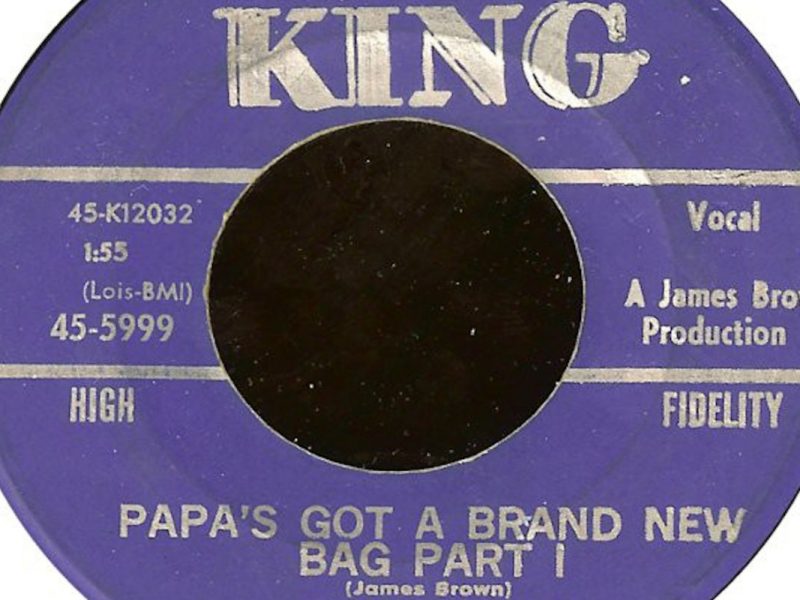Once the near four-year slog to complete Hysteria reached its end in early 1987, Def Leppard didn’t have much time to relax. They were instead confronted with a new challenge that was almost as big as the recording of the album turned out to be: turning a profit.
“We were in really serious debt, like $5 million in three years,” guitarist Phil Collen recalled in 2019. “Studios and everything – shipping, cargo, hotels and God knows what.” That was a similar amount to the profit made from their previous LP, 1983’s Pyromania. So they had to sell more records than they ever sold before just to break even and millions more still to turn the $12 million the label expected after all that investment.
Fortunately, Def Leppard was confident in what they’d achieved in the studio. They had aimed to create a record where every track was a potential hit. Now that the time had come to prove it, they wanted “Animal” to be the first of a series of singles. But their management disagreed: Cliff Burnstein of Q Prime wanted “Women” to start the chart onslaught.
It wasn’t the band’s favorite song at the time. Not because there was anything wrong with it, but because it had taken the longest to complete as they worked with producer Mutt Lange to develop a completely new approach to making rock records. “We were painting a picture here that had never been painted before, so we did have to go down a lot of dead-end streets and find out if they were valid or not, and then come back up and go down another one,” singer Joe Elliott said in a 2002 interview. “What Mutt was doing was setting up the mix, the overall sound for the album. He did that on the one song, and when he [got] to doing the remaining songs, they weren’t going to be taking that long.”
Collen described “Women” as a crucial element of the album. Lange had suggested that the opener should be about the band’s thoughts on females. “We went with his idea and it really worked,” the guitarist said. They struggled with the closing part of the track, rerecording it as Lange searched for something “that’s different.” “We sat down and worked out a climactic bit,” Collen recalled. “To be quite honest, the end is a bit of a goof-off and it got left on.”
Hailing his bandmate’s contribution, Elliott said, “My favorite part is at the end. The modulating key changes as Phil solos away. It’s a magical moment that one day you hope your band will find themselves doing.” Drummer Rick Allen, who undertook “Women” as his first task after fighting back from the car accident that had taken his left arm, recalled that “it helped that it didn’t have a frantic tempo.”
Watch Def Leppard’s ‘Women’ Video
In 2017, Burnstein told Billboard why he disagreed with the band members on the choice of the LP’s first single. “We always thought, long term, the band would be strongest if they were always associated with being a hard-rock band,” he said. “And so we took that hardest rock song on the record.”
The gamble did not pay off: “Women” peaked at No. 80 and spent only three weeks on the chart. “There was virtually no crossover at all,” Burnstein admitted. “It was generally considered to be a disappointment, and the record was generally considered to be a failure. … The label was scared as hell. … I wouldn’t tell the band all this stuff. I’d just [say], ‘We’re building this song by song, and eventually, we’re going to get there.’”
Senior marketing executive Jim Urie recalled, “The first single didn’t do well and we were very concerned. The promotion guys were getting a huge amount of heat. It only got up the charts as far as it did because it was a maximum effort by the whole company, the promotion staff and everyone involved to try and get it up there. It really was a quasi-stiff, which was a surprise because it was a good song.”
Collen reflected on the failure in 2016, telling Songfacts, “ I think certainly when you figure MTV and radio, everything is based on ratings and ads and all of that stuff. It is a business after all, so a song like ‘Women,’ unless it’s been in a movie or a commercial, is never going to be as commercially acceptable as say something like ‘Hysteria,’ ‘Animal’ or ‘Pour Some Sugar on Me.’ … It’s like completely beyond the band, the producer, even the record company in some cases. It’s just down to: ‘We notice when we play this song, the ratings go up, so that’s when we place our ads.’ … When you’ve got a band and you go, ‘Why isn’t this song popular?’ That’s why. It hasn’t had the backing.”
As Burnstein reported with some relief, Hysteria began to sell big after the cumulative effect of several singles, topped with the breakthrough hit “Pour Some Sugar on Me.” But, he owned up, “it really was touch and go for a while.”
Elliott recalled that some people saw the Def Leppard comic book in the “Women” video and thought it was a real product, but it was only a single page stuck to another publication. “It was just a one-off page … so they could film the kid making it look like he was reading Def Leppard and the Women of Doom,” he told the Quietus in 2013. “That piece of cardboard … could easily have just got tossed in a bin. Because nothing’s historical until it’s old. But I made sure to grab it. I’m the archiver of the band if anybody is. I make sure that everything, whether it’s the door sticker on the dressing room at Letterman, all the way to things like that cover that’s now iconic, I make sure to grab them just in case we ever need them.”
With Hysteria’s success assured and Def Leppard’s future with it, “Women” went on to become a classic song that often returns to the band’s live set. “When Phil starts it off live,” Allen said, “the place still goes nuts.”
Weird Facts About Rock’s Most Famous Album Covers
Early on, LPs typically featured basic portraiture of the artists. Then things got weird.



